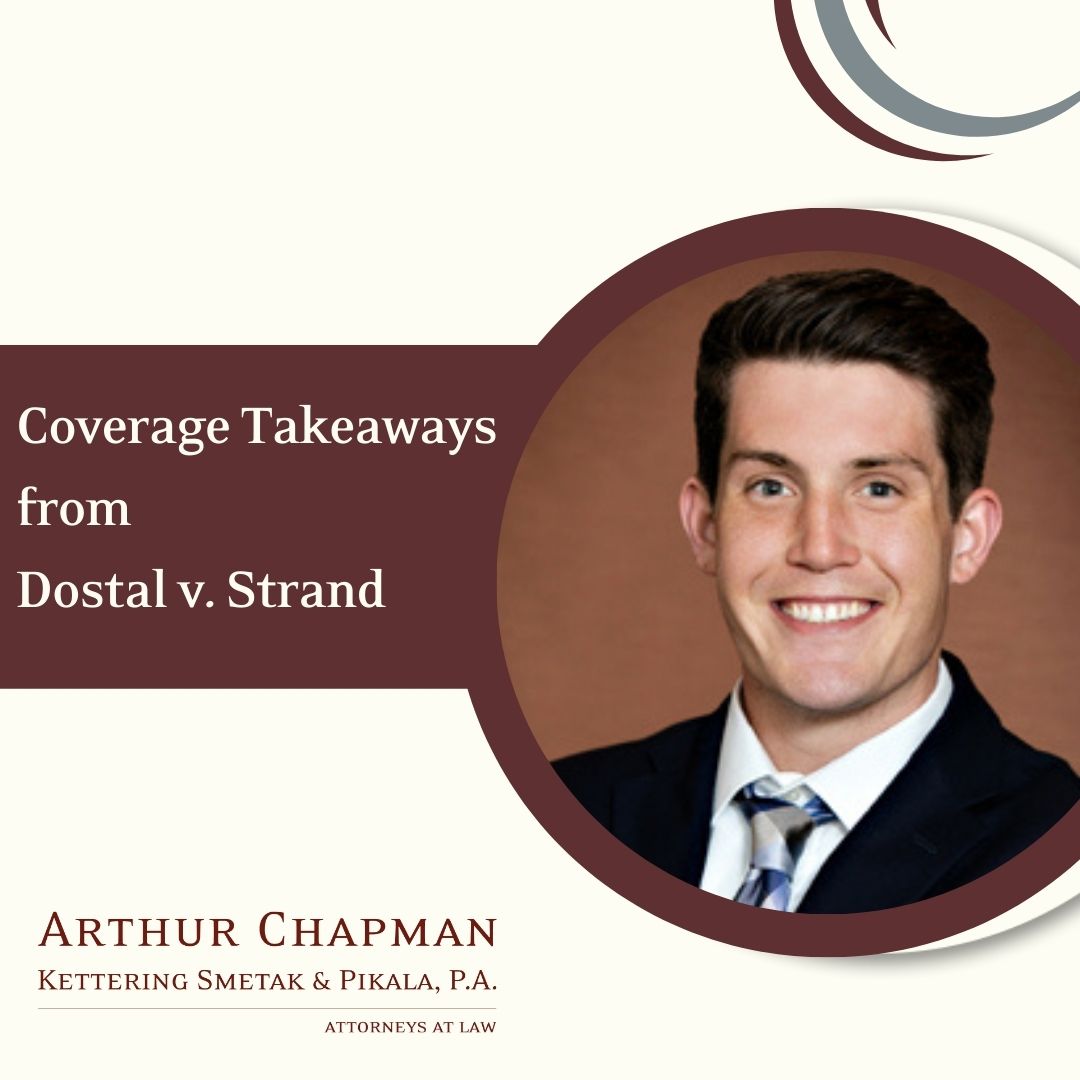By: Jack Edell
On January 26, 2023, the Wisconsin Supreme Court issued Dostal v. Strand, 2023 WL 406049, _N.W.2d_ (Wis. 2023), and concluded that a conviction of second-degree reckless homicide does not preclude an aggrieved party from arguing the conduct is an “occurrence” for purposes of liability coverage and that reckless conduct is not synonymous with intentional conduct when analyzing application of intentional-act exclusions.
In the case, Lindsey Dostal, mother of infant Haeven Dostal, brought suit against father Curtis Strand and his insurer, State Farm Fire and Casualty Company, after Haeven suffered an ultimately fatal head injury while in Strand’s care. Strand gave contradictory accounts of how Haeven’s injury occurred, but always claimed it was accidental. It was undisputed that Strand put Haeven to bed without seeking medical attention after she sustained the head injury. Ultimately, a jury found Strand guilty of second-degree reckless homicide pursuant to Wis. Stat. § 940.06(1), finding that Strand created an unreasonable and substantial risk of death or great bodily harm and that he was aware of that risk.
Following the criminal proceedings, State Farm obtained a declaration from the circuit court that its policy issued to Strand provided no coverage for Lindsey Dostal’s claims because there was no “occurrence” and the policy’s intentional-acts exclusion applied. The Court of Appeals affirmed. The Wisconsin Supreme Court reversed, concluding that a criminal conviction of second-degree reckless homicide did not preclude the insured (or in Dostal, the plaintiff) from arguing that the injury to Haeven was accidental and therefore an “occurrence.” The Court further held that the reckless homicide conviction did not compel application of the policy’s intentional-acts exclusion.
Important Takeaways:
In Wisconsin, a conviction for a crime involving recklessness does not place an insured’s conduct outside the scope of an “occurrence” for purposes of liability insurance coverage and does not – as a matter of law – invoke application of an intentional act exclusion. Dostal appears to broaden the interpretation of what constitutes an “occurrence” under liability policies, and narrow the circumstances in which an intentional-acts exclusion will be enforced.
The Wisconsin Supreme Court did note, in dicta, that if the policy had contained a criminal-acts exclusion, the outcome likely would have been different, so consideration may be given to adding criminal-acts exclusions in Wisconsin liability policies where such exclusions are not statutorily prohibited.
The Dostal Court did confirm that its decision did not alter past precedent holding that intent to injure may be inferred as a matter of law in cases involving particularly egregious conduct, though the bar for what type of conduct is sufficiently egregious to warrant inferring intent as a matter of law seems to have been raised.
If you would like to discuss what constitutes an “occurrence” and application of intentional-act exclusions under Wisconsin law in the aftermath of Dostal, contact the Arthur Chapman Insurance Coverage Practice Group.



